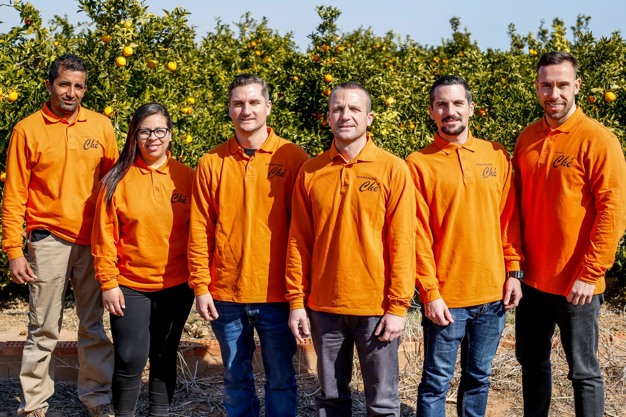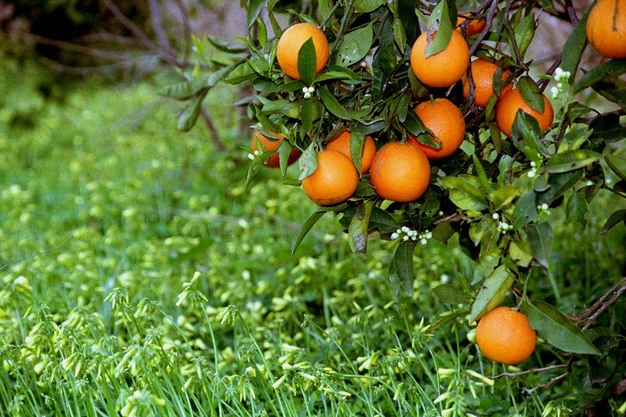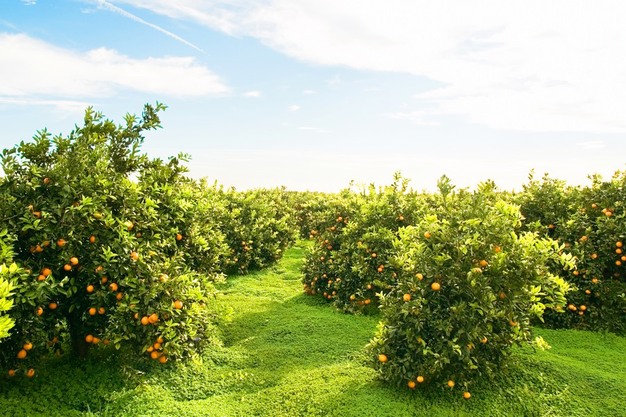Spanish clementine prices have been rising since the season began, just like last year, and although there is some uncertainty as to what is going to happen after Christmas, for now the rains are improving the prospects.
"The Valencian Community has been recording quite a lot of rainfall over the last week and it is expected that the rain won't stop until the end of this week, so the price could still continue to rise," says Guillermo Antelo from Naranjas Ché. "Nevertheless, the fruit is looking great, and except for the break in the harvest, the water won't affect the quality. In fact, the cold these days will help it acquire the color it still lacks."

"At Naranjas Ché, we specialize in organically-grown clementines and the harvest started in the Camp de Morvedre region around a fortnight ago with the Oronules and Marisol varieties. The earliness and quality of the fruit have been very good and, although there has perhaps been some delay in the coloring, the Brix and juice content are perfect."
In fact, this year, the juice industry will probably be a bigger outlet for small citrus fruits, including clementines, according to the processing sector, given the overall drop in the production of oranges for the industry. "Processing clementines for juice is always a possibility; part of our fruit is actually used by the industry each season. However, over the years we have seen that, no matter how the season goes, clementine juice has always been more underrated than orange juice, which fetches a much higher price."

"Clementine juice is much more refined and sweeter, and whether it is because of consumption or market trends, or because of the fruit's yield in the industry, we still have the unfinished business of boosting the value of clementine and mandarin juice, so that it can be sold in European markets for similar prices as orange juice," says Guillermo.
"The organic fruit and vegetable market is becoming more and more similar to the conventional"
As far as the organic citrus market is concerned, Guillermo says: "It is much more limited than the conventional and there is not as much supply or demand. It is true that it has become more popular in the last 10 years; in fact, today practically all large European retail chains have an organic range and most volumes are sold through them and no longer through specialized stores or small chains. This is very positive for the sector, as it is allowing organic products to become more popular and the market to become more professional, but the business model is becoming more and more similar to the conventional one."
"For the last two or three years, we've had some unusual market conditions, which leads us to think that the organic market could have reached a ceiling and it is stagnating a little. This is something that we are seeing reflected in the prices. In the past, there was a significant gap between the conventional and organic. While conventional clementines were marketed for 1 euro/kilo, the organic would reach 1.30-1.50 euros/kilo. However, in recent years, this difference has been reduced from 30% to 50% to just 10-20%".
"Faced with this situation, some fellow organic citrus growers have given up on their organic certifications and gone back to conventional production, because the market price is not making up for the extra cost of inputs and the lower yields of organic production. Furthermore, in recent years, conventional citrus, especially first season citrus, has been fetching very attractive prices and this has convinced some growers to go that route."
"We strongly believe that clementines are the product par excellence of Valencian agriculture"
Avocados are another product that has motivated traditional citrus growers, in this case both conventional and organic, to consider switching to a different crop. "In fact, there has been a meteoric rise in avocado production in the Valencian Community. Sagunto, where we are based, has traditionally been a great clementine producer, but growers with plots of land where it is possible to grow avocados are reducing the acreage devoted to clementines and replacing them with Hass or Lamb Hass avocados."

"It is true that the demand and consumption have significantly increased, but in recent seasons, large volumes of avocados have been arriving in Europe from Latin America or Morocco, causing prices to fall below the levels that growers were expecting," says Guillermo.
"Other products, such as pomegranate, kiwifruit and pitaya, are also being grown in the area. Nonetheless, at Naranjas Ché we strongly believe that clementines are the product par excellence of Valencian agriculture. The fruit is highly-demanded in Europe; it is very easy to consume, very sweet and has a great flavor and a very long season lasting from early October to March."
"It's worth recalling that clementines are one of the few fruits with a European production in winter. We are fortunate to have a fresh, local, tasty and highly-consumed product, and that is why we continue and will continue to bet on the region's flagship fruit."
 For more information:
For more information:
Ché Oranges
Cam. Montiver Pol 31, Parc 335, 46500, Sagunto, Valencia. Spain
Tel.: +34 963 172 344
[email protected]
www.naranjasche.com
